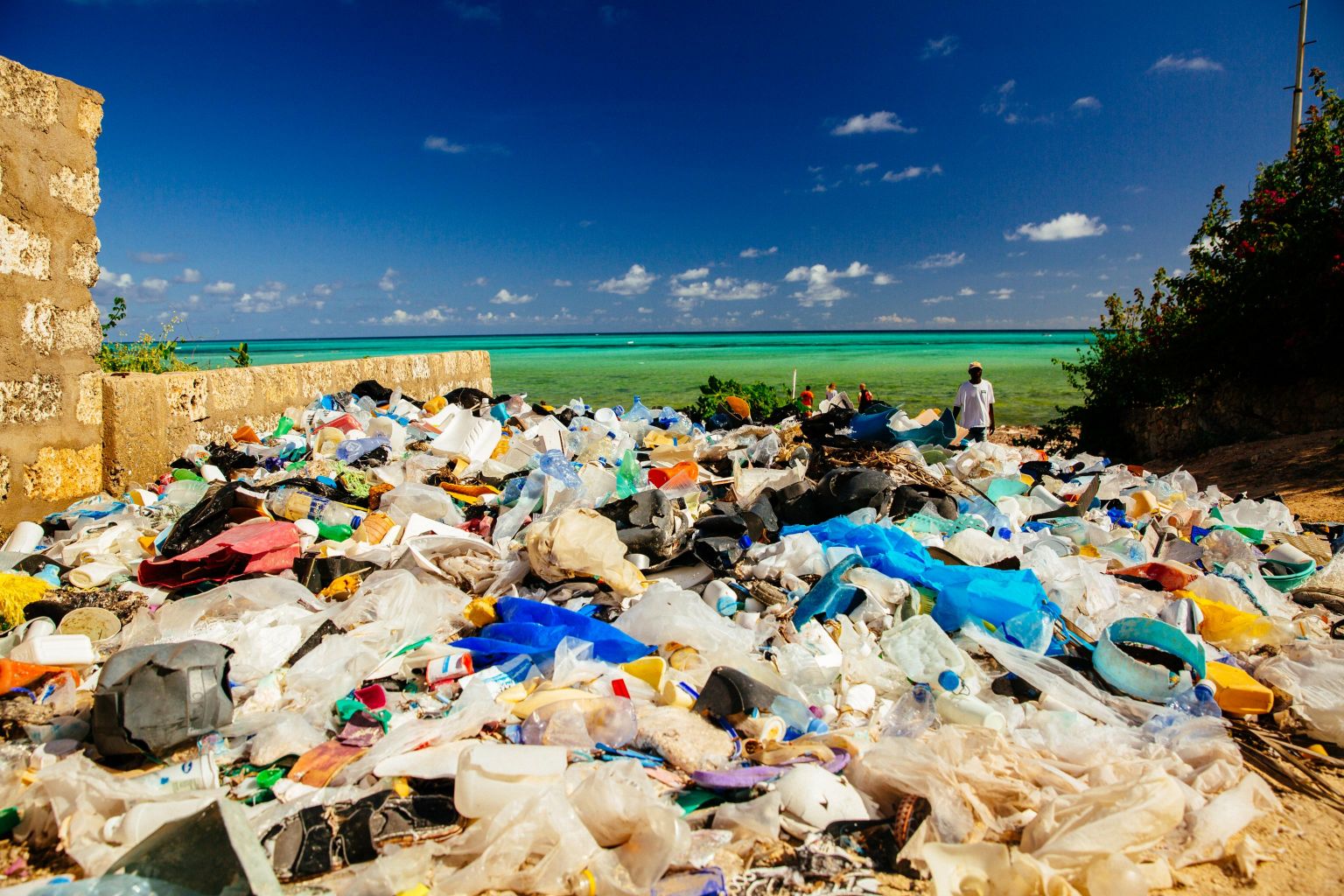Pastamania, Hilton and Wildlife Reserves Singapore among 9 companies pledging to cut plastic use
Sign up now: Get ST's newsletters delivered to your inbox

Plastic litter washed up on Watamu beach, Kenya. According to WWF, 80 per cent of plastics in the ocean are believed to come from land sources.
PHOTO: GREG ARMFIELD, WWF-UK
SINGAPORE - Going beyond simply banning plastic straws, nine companies here have pledged to take more targeted measures to reduce their plastic use.
For instance, Wildlife Reserves Singapore has committed to completely eliminating single-use plastics from its supply chain by 2025, with some exceptions such as for safety reasons.
Italian restaurant operator Pastamania said it is working towards reducing its packaging waste and eliminating single-use plastics over the next few years.
Ramada and Days Hotels by Wyndham Singapore at Zhongshan Park will also switch to 100 per cent reusable or recyclable product and packaging designs by 2020.
The World Wide Fund for Nature (WWF) announced on Wednesday (Jan 30) that the nine companies are signatories to the Plastic Action, or Pact, initiative. WWF launched this initiative in line with heightened public concern about the environmental and health impact of plastic pollution.
The other six companies involved are AccorHotels Group, Hilton Hotels in Singapore, Kraftwich, Pontiac Land Group, SaladStop! and Udders.
They are expected to take measures to cut plastic use within stipulated timeframes they set, starting with the removal of unnecessary plastics from their operations.
They will also take responsibility for their plastic use beyond the point of sale, by collecting and recycling more plastics than they produce.
In addition, they will take another look at the designs and types of plastics used in their products, to ensure more emphasis is placed on making them reusable and recyclable.
Finally, the companies will support a range of conservation and research projects, which may take the form of finding better materials for their plastics, improve waste management, or remove plastics from nature.
However, companies will not have to eliminate plastics entirely in certain situations. This is because they may still need plastics that are absolutely critical for a product, or for safety and hygiene reasons like cling wrap in food preparation.
Elaborating on this, a WWF spokesman said: "We recognise that certain plastics are still essential (for these reasons). The commitments are aimed at eliminating excessive or unnecessary plastic use by businesses, while switching to plant-based plastic or alternative materials that are more sustainable."
WWF Singapore's chief of strategic communication and external relations, Mr Kim Stengert, said: "There's no silver bullet for the world's growing crisis with plastics. While the removal of a straw or slight reduction of plastic bags is great, these measures are just not enough to match the level of the plastic pollution crisis."
He added that signatories to Pact were making an "ambitious and science-based" commitment to systemic change.
Supported by the National Environment Agency (NEA), Pact builds on WWF's vision of no plastics in nature by 2030.
Mr Stengert highlighted a 2018 survey by YouGov, which found that 95 per cent of consumers here acknowledged the environmental, health and pollution issues caused by the excessive use of disposable plastics.
In the survey, consumers also pointed to the food and beverage and food retail sectors as the biggest sources of disposable plastics in Singapore.
He said that such results showed that people in Singapore clearly understand the plastic problem and are willing to take actions that benefit the environment, even if it means inconveniencing themselves or paying for single-use plastics.
"That's an incredibly important signal to businesses in Singapore and the region," added Mr Stengert.
WWF said that addressing the use of plastics by businesses is key to addressing the crisis of plastic pollution as 80 per cent of plastics in the ocean are believed to come from land sources.
It is estimated that by 2050, there could be more plastic in the ocean than fish by weight, with potential implications on human health and well-being.
WWF added that studies have found microplastics in the guts of one out of four fish, in tap water samples of 14 countries and even in air pollution.
Plastics are harmful to the environment for numerous reasons. For instance, they cannot degrade through biological processes, meaning they can remain in the environment for thousands of years.
Instead, they break down into smaller pieces, which are often consumed by marine animals, leading to malnutrition, intestinal blockage and slow poisoning.
Last year, several businesses across Singapore took steps to reduce the use of disposable plastics in their products. In December, Yakult Singapore announced it would no longer be providing plastic straws for its probiotic milk drinks.
Attractions and dining establishments at Resorts World Sentosa also stopped providing plastic straws since October, while fast-food chain KFC stopped giving customers plastic straws and lids for drinks in June.


